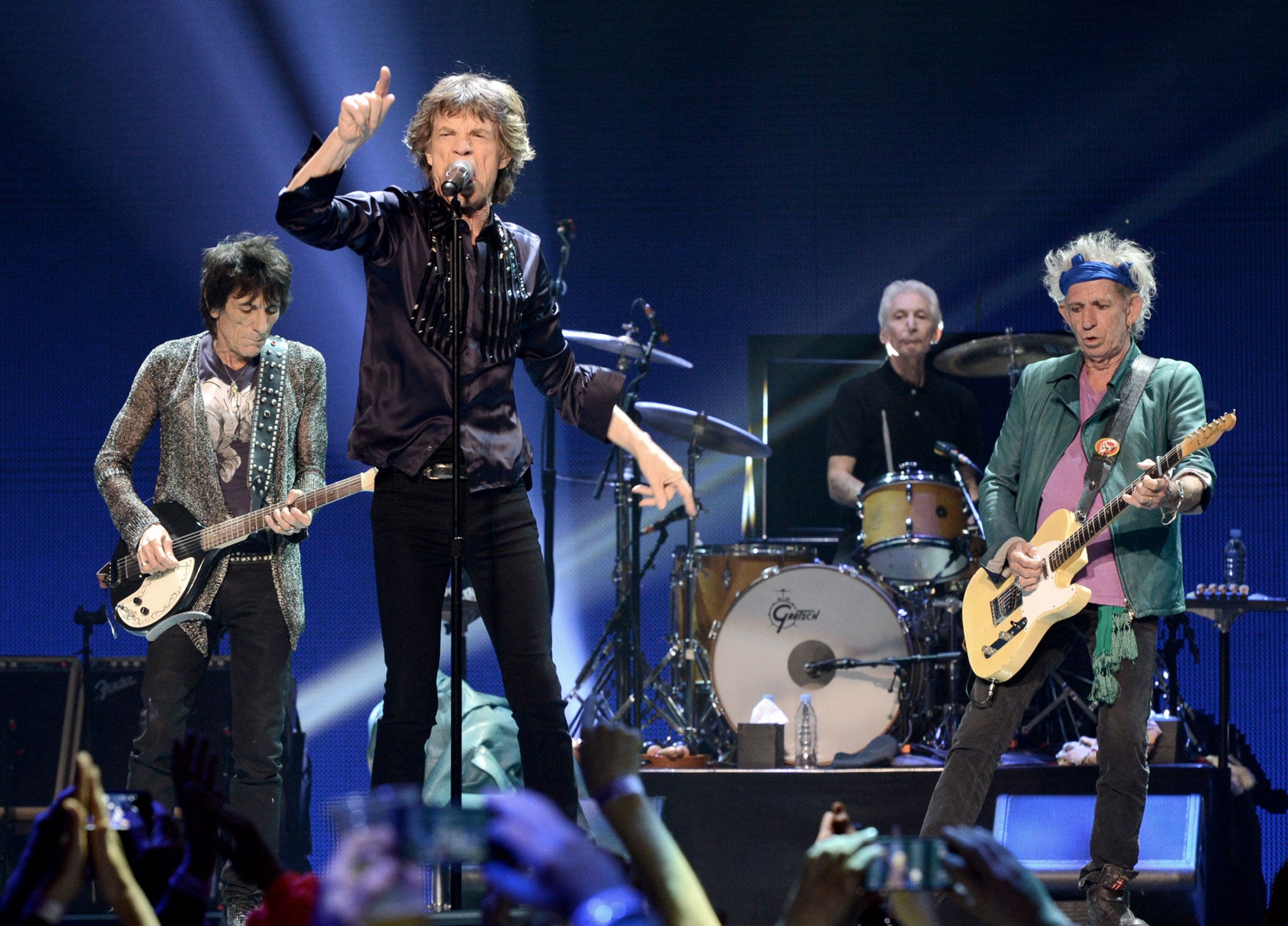Our elder rockers have outgrown our descriptions
Plus: Opera in English? Sorry, I'll need that in writing and some frankly filthy language at the Globe this summer


Okay, you do have to pinch yourself or wonder whether you have woken up in the TV series Life on Mars, in which the hero woke up to find himself transported back to the Seventies. In the last two weeks, we've had Black Sabbath with a new album at number one in the charts, with the main challenger for the top spot Rod Stewart. Last weekend, a full house at the O2 Arena watched a sprightly 78 year-old Leonard Cohen perform. This was preceded a few days earlier by rave reviews for The Who and Bruce Springsteen. And tonight, The Rolling Stones top the bill at Glastonbury.
It's easy to poke fun, and no doubt many will. It's a safe bet that somewhere over the next 48 hours we will read the combined ages of the Rolling Stones. The last time I met Mick Jagger he sighed wearily to me that every time the band plays there's a bunch of journalists who "like to show they can do arithmetic."
Yes, it's easy to poke fun, but it's too glib. Rather we should take this quite extraordinary moment of so many old rockers being in demand at the same time to glory in the longevity of highly accomplished, energetic and charismatic performers, but also to redefine rock, pop and the business of performance.
There's never been a problem with septuagenarians playing jazz or the blues. Indeed, a weathered look gives kudos in both art forms. Rock and pop, though, since the first rock 'n' roll explosion in the Fifties, and even more so with the pop explosion in the Sixties, have been the province of youth, and the music has gone hand in hand with a posturing sexuality. Despite Mick's 28-inch waist and remarkable physical fitness, it is clearly faintly absurd to pretend to any of that when pushing 70. Yet, as the excitement and response in the audience will show tonight, there is still remarkable energy in the performance and the music, and a hint of subversiveness in the banter.
Those who have a problem in totally committing to the idea of pensioner pop are those who find it hard to lose sight of that original driving force of rock'n'roll, the rebellion and sexual assertiveness of youth. The packed crowds for the likes of the Stones, Springsteen, The Who, McCartney, Neil Young, Cohen and Dylan mean the time is ripe to find not just a new attitude towards pop and rock, but a new vocabulary. The word rock, with too many youthful connotations, sits uneasily with septuagenarians, even if the musicians themselves have no shortage of energy. We need new words – maybe the simplest word of them all, music, will suffice – and while we do still label it pop or rock, we need to see it as multi-generational and with no age barriers. It isn't easy to throw off those Fifties and Sixties associations with youth, sex and rebellion. But the performers have outlasted the concept.
Opera in English? Sorry, I'll need that in writing
Watching Deborah Warner's marvellously haunting production of Benjamin Britten's Death in Venice at the English National Opera, it was evident that there were no surtitles. Although ENO's productions are all sung in English, the company has used surtitles for some years now. It appears that Ms Warner, specifically requested that there be none for her production. Nearby, at the Royal Opera House, another Benjamin Britten opera, Gloriana, is currently playing. That does have surtitles. As it happens, at Death in Venice I could hear every word that was sung and there really wasn't a need for surtitles. Nevertheless, this is getting mighty confusing. The ENO sings in English yet needs to put the words up on a screen. The same composer is given surtitles for one opera but not for another just down the road. A surtitle policy, presumably carefully considered and deemed necessary for audiences, is changed at the request of one director. Are surtitles for operas in English necessary or not? I wish they'd make up their minds.
Frankly filthy language at the Globe this summer
Those familiar warnings about how viewers might find some scenes disturbing are usually phrased in the most coy and delicate language. So, I found it rather refreshing to look at the brochure for this season at Shakespeare's Globe Theatre. One of its shows later in the summer will be a new play called The Lightning Child by Che Walker. This is described as a modern take on Euripides' The Bacchae, combining crossdressing, drug abuse, internet porn and classical myth. The warning to spectators printed in the brochure dispenses with all the coy stuff. It states simply and straightforwardly: "Production contains filthy language." Can't say fairer than that.

Join our commenting forum
Join thought-provoking conversations, follow other Independent readers and see their replies